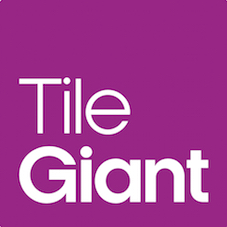UK DIY News
UK inflation drops to 1.7%
A fall in petrol prices pushed the UK inflation rate to a new four-year low of 1.7% last month, figures show.
It is the second consecutive month that the Consumer Prices Index rate has been below the Bank of England's 2% target, having stood at 1.9% in January.
Inflation measured by the Retail Prices Index (RPI) fell to 2.7% in February from 2.8% the month before.
Average petrol prices fell by 0.8p a litre between January and February, compared with a rise of 4p a year ago.
The Office for National Statistics (ONS) also said diesel prices dropped by 0.8p a litre, compared with a 3.7p increase the year before.
The fall in the rate of inflation means that the gap between pay increases and the rise in prices is narrowing.
Average total earnings rose 1.4% in the three months to January, compared with a year ago, according to the ONS' latest figures.
Public sector workers saw a rise of just 0.9% in the same period, but private sector pay growth was 1.7%, meaning it has already caught up with the increase in prices.
Further falls?
Prime Minister David Cameron tweeted that the figures support the government's economic strategy.
"Our long term economic plan is helping provide stability and security for hard-working people," he wrote.
"A favourable combination of lower import prices, flat commodity prices and recovering productivity is likely to help CPI inflation fall further, perhaps to about 1% by the end of the year”
Labour's Shadow Treasury Minister Catherine McKinnell said she welcomed the fall in the inflation rate, but said there was still a "cost-of-living crisis".
"The squeeze continues as prices are still rising faster than wages. Working people facing this cost-of-living crisis are on average £1,600 a year worse off since David Cameron came to office," she added.
Economists said the fall in the inflation rate was likely to underline the Bank of England's message that there is no rush to raise interest rates.
Howard Archer, chief UK and European economist at IHS Global Insight, said rates were now likely to stay at 0.5% until early next year despite the improved growth in the economy.
Samuel Tombs of Capital Economics said he expected inflation to fall even further.
"A favourable combination of lower import prices, flat commodity prices and recovering productivity is likely to help CPI inflation fall further, perhaps to about 1% by the end of the year," he said.
As well as the impact of a drop in petrol prices, the ONS said the price of clothing and footwear had also increased at a slower pace than the same period last year, and energy bills also had a downward effect on inflation.
However, the price of furniture and home furnishings rose by more than last year, the ONS said.
Source : BBC News
www.bbc.co.uk/news/business-26730533
Insight DIY always publishes the latest news stories before anyone else and we find it to be an invaluable source of customer and market information.








































